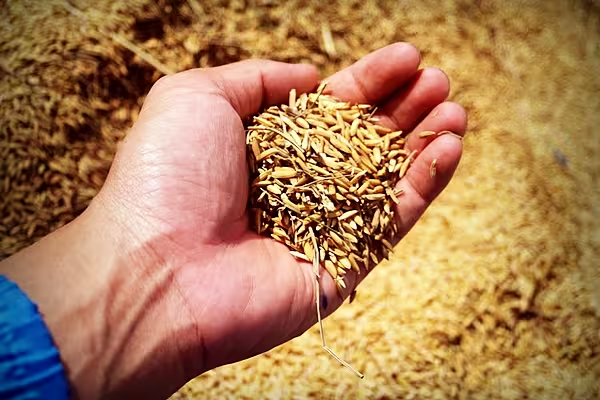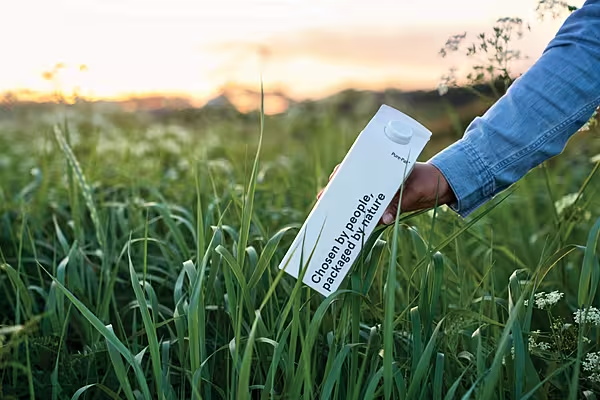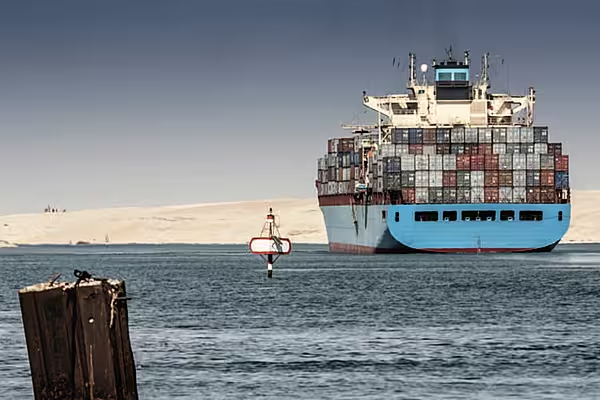Mark Diederichs wiped a splatter of manure from his arm as four Hispanic workers guided the next 44 cows into stalls, swabbed each animal’s teats with neon-blue disinfectant and attached computer-controlled milking-machine units.
They moved quickly, repeating the thrice-daily process until the Wisconsin dairy’s 2,650 cattle had provided more than 10,000 gallons. If Donald Trump has his way, Diederichs says, the farm he runs may not have enough people to tend the herd because about two-thirds of his 35 full-time workers are immigrants.
Trump’s proposal to deport undocumented immigrants and wall off the southern U.S. border has created an unexpected bastion of resistance: dairy farmers.
Unlike farms that operate with a seasonal rhythm, milk operations function around the clock, 365 days a year, making short-term guest-worker programs ill suited. Farmers say they can’t get enough relatives or local workers, even with pay starting at $11 an hour or more -- well above the minimum wage of $7.25 -- with benefits that include a 401(k).
“It’s hard to get people that want to come out and do this type of work,” Diederichs, the 54-year-old general manager at Lake Breeze Dairy in Malone, said in his office after the May 31 morning shift.
Dairy Aisle
Without immigrant labor, dairies would close, output would drop and consumers would pay almost twice as much for milk, according to a study funded by dairy producers that estimated the cost to the U.S. economy at $32 billion. Now that Trump is poised to claim the Republican nomination, even some dairy farmers who lean Republican are undecided or considering supporting Democratic frontrunner Hillary Clinton in November.
“With my group of friends, we kind of joked around and said, ‘Wow, did you ever think you’d vote for Hillary?”’ said Mitch Breunig, a Sauk City farmer who is president of the Professional Dairy Producers of Wisconsin.
One third of all U.S. dairy farms employed foreign-born workers in 2014, and half of all workers are immigrants, according to a survey by researchers at Texas A&M University commissioned by the National Milk Producers Federation in Arlington, Virginia.
A complete loss of immigrant labor could mean the elimination of more than 7,000 dairy farms and 208,000 jobs, a reduction in milk production by almost 50 billion pounds, and an increase in retail prices by 90 percent, the report found.
While dairy processors such as Dean Foods Co. won’t speculate about the impact that Trump’s proposals could have on their companies, a substantial decline in production would mean higher costs which would be passed to consumers for milk, cheese, butter and other products, said David Anderson, a livestock economist at Texas A&M who participated in the study.
“You’ve got to have milk to start with,” Anderson said.
No Fat
Dairy farms already are under pressure. Wholesale prices are less than half what they were two years ago, as record U.S. production rose faster than demand. American shoppers paid $3.16 per gallon on average in April, the lowest since 2010, government data show.
Now comes the prospect of losing labor. Trump told voters in Wisconsin before its April 5 primary, which he lost to Texas Senator Ted Cruz, that he supports a visa program to allow workers to come into the U.S. legally. Yet he hasn’t offered details, and as many as 70 percent of agricultural workers are undocumented, said Kristi Boswell, immigration lobbyist with the American Farm Bureau Federation.
In Wisconsin, which is second to California in milk production, about 60 percent of immigrants on dairy farms are undocumented, said Gordon Speirs, a farmer from Brillion and president of the state’s Dairy Business Association.
Farmers say they can’t verify falsified documentation from workers. Milking robots can cost $200,000 each, and critics who say farmers should pay more to get U.S. workers don’t know the business, Speirs said.
“We’re very weary with hearing the statement, ‘Those Mexicans are taking jobs away from Americans,”’ Speirs said. “Come and show up on my door, and I’ll give you the job. But you’ve got to keep your job.”
Low wages are subsidized by taxpayers in the form of welfare, tax credits, education, housing and medical care, Trump policy adviser Stephen Miller said. The reliance on illegal labor also defers cost-reducing mechanization and lowers working conditions, he said.
“Cheap labor is not cheap,” Miller said by e-mail. “Open borders makes us all poorer in the end.”
Alvaro Ramirez, 36, said he came to the U.S. from Zacatecas, Mexico, in 2000 with the help of an uncle in Chicago and has worked in Wisconsin at a packaging plant, stone quarry, warehouse and on dairy farms. He started working for Diederichs about four years ago and now manages the milk parlor.
“To me, it’s not a tough job,” Ramirez said in an interview. He has a permanent resident card, Diederichs said.
Ramirez said while some immigrants are nervous about their futures if Trump gets elected, he doesn’t think the billionaire is serious.
Curdled Appeal
Trump’s immigration stance “scares the hell out me,” said Speirs of the Dairy Business Association. Still, he plans to vote for the billionaire because his proposals aren’t likely to be realized, and he’s better than Clinton on other issues.
While Trump’s anti-immigration stance helped him secure the Republican nomination, it can work against him in a general election -- especially in crucial states such as Wisconsin, Ohio and Pennsylvania, said Charles Franklin, director of the Milwaukee-based Marquette Law School poll.
His polls show that only 28 percent of Republicans in Wisconsin favor Trump’s position of deporting all undocumented immigrants without any path to remaining, as do only 8 percent of Democrats and 20 percent of independents.
A May 10 Quinnipiac University poll showed that only 31 percent of voters in Ohio and 27 percent in Pennsylvania support Trump’s position, while a majority in both states oppose his plan to build a wall.
“Donald Trump throwing that out there, that puts a big red flag up for a whole bunch of us in agriculture,” said Matt Andreas, 37, who manages his family’s dairy farm in Sugarcreek, Ohio.
News by Bloomberg, edited by ESM. To subscribe to ESM: The European Supermarket Magazine, click here.














